
Workshop Options
Select one option from each session
Session One Workshops
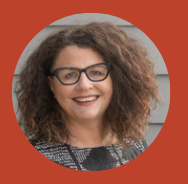
Workshop 1: Confessions of an ex-External Evaluator
Tania Bullick, University of Waikato
After two years of working as an external evaluator and having now left that work behind, Tania is ready to confess to her ECE colleagues the expectations of external evaluators and what they might be looking for in assessment. You will get to know whether or not Learning Stories are valuable to your review, how they could be and how they might meet the curriculum and evaluation guidelines. Bring your questions!
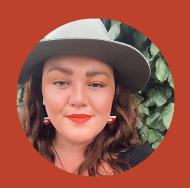
Workshop 2: Whakapapa – foundation, process, and potential
Emma Parangi, Educational Leadership Project
Learning Stories provide a snapshot of where a tamaiti is in their learning, their connections, and their trajectory. Learning Stories weave together the moving strands of where that tamaiti is in space and time. When we craft Learning Stories we aim to be guided by an authentic knowledge of who tamariki are. For Tangata Whenua, tamariki are a continuation of whakapapa which extends back to the beginnings of space and time themselves. This is a complex concept embedded in a Māori worldview of time, space and relationality. Join Emma in this wānanga to explore whakapapa as the source, journey and possibility of āhurei for the tamariki Māori we learn alongside.
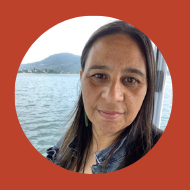
Workshop 3: Using Learning Stories as evidence for your Internal Evaluation
Roberta Skeoch, Educational Leadership Project
He iti, he iti mānuka
Though little, it is a mānuka tree
This particular whakatauki relates to the mānuka/ kahikātoa tree. Though small in size, mānuka has a staggering amount of uses, from food to rongoā, as well as all manner of tools and artefacts. Like the mānuka tree, wonderfully written Learning Stories can also serve a number of purposes from assessment to evidence of Te Whāriki in action, Internal Evaluation and teacher inquiry. This workshop will focus on using Learning Stories as evidence for the Standards of the Teaching Profession for teacher certification purposes.
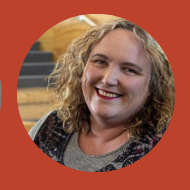
Workshop 4: Reporting with the Head and the Heart
Tara O’Neill, Principal, Waitati School, Dunedin
When I let go of what I am, I become what I might be. Lao Tzu.
Come and hear our unique story about introducing Learning Stories in a small rural school in New Zealand, where we have moved away from traditional reporting using comments copied and pasted twice a year to a personalised way of sharing learning in real time.
We are two and a half years into introducing a personalised way of sharing learning. I will share the challenges, the costs, plus the highlights and celebrations. Our Learning Stories are complemented with learning goals inspired by our community working together as we strive to create a way of sharing learning which is meaningful to ākonga, kaiako and whānau. We use the Educa platform to write our stories.
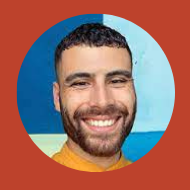
Workshop 5: Deepening relational pedagogy through resonating with Learning Stories
Rafa Pérez-Segura, Education Director, Mi Casita Preschool and Cultural Center in Clinton Hill/Bed-Stuy, Brooklyn, USA
Learning Stories are a powerful framework to share the beauty and strengths of children with them and the rest of the community. In this workshop, we will engage in a structured listening and response practice of sharing resonance that can be done between all important people in children’s lives. This practice is inspired by Cedar Landsman and Lucién Demaris’ work at Relational Uprising around cultivating somatic relational cultural practices in various movement spaces and organizations. Through this workshop, we will learn to slow down, savor, and deepen our understanding of ourselves, our children, and other members of our community in service of holding increasing levels of complexity.
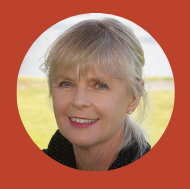
Workshop 6: The Promise of Play
Lorraine Sands, Educational Leadership Project
“Play: How it shapes the brain, opens the imagination, and invigorates the soul”
I share Stuart Brown’s book title with you because it gives such a visual interpretation of the way play grows a child’s brain, builds empathy, fosters social learning and generates creativity and innovation. Alison Gopnik’s comments are challenging too. “Our job is not to shape our children’s minds; it is to let those minds explore all the possibilities that the world allows”.
Teachers’ practise that honours free play honours the aspirations of Te Whāriki as we are all asked to enable agentic children to have choices about what to learn, when, and with whom. This workshop provides practical examples of how to design environments for authentic free play to unfold. We will explore how to use Learning Stories to analyse the dispositions and working theories that are strengthened when children immerse themselves in play.

Workshop 7: Three unique perspectives: Journeys through storytelling
Azul Muller MA, Felton Institute, San Francisco
Claire Boss, Child Development, Gavilan College, California
Dr. Christine Carducci, Foothill College and Pacific Oaks College, California
Azul Muller, Claire Boss, and Christine Carducci will share how Learning Stories have empowered their practice within a teacher education setting. Presenters will share their individual journeys understanding and implementing learning stories in their work.
Azul Muller will share her journey about the power of Learning Stories in her relationships with child, co-teachers, and families. Azul’s experiences as a teacher and coach inspired her to write learning stories that captured not only childrens unique learning and dispositions but also those of the teachers she coaches. In this presentation, Azul will share the journey she took in writing Learning Stories to children and transformed them to also shine light to teachers learning and facilitation of learning with children.
Claire Boss will discuss how Learning Stories impacted her teaching practices with infants and toddlers. She will also explain why she implemented the narrative in her courses at Gavilan College and how learning stories have influenced the learning and teaching of preservice teachers and mentors in the Child Development and Educational Studies program. Lastly, Claire will highlight the work of her students and their perspectives on the learning stories process, as well as share her experiences of writing learning stories to practicum students.
Chris Carducci will share about how international early childhood programs in both Reggio Emilia, Italy and throughout Aotearoa / New Zealand inspired a change in beliefs and values of what early care and education could be and the power of observation, narrative assessment and multiple perspectives to support young children and their families. Chris’ experiences come from direct care of infants, early childhood special education and higher education instruction contexts in the San Francisco Bay Area of Northern California in the United States.
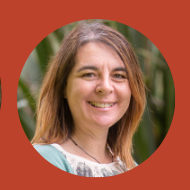
Workshop 8: I am me: celebrating the uniqueness of the infant and toddler
Anita Homewood, Educational Leadership Project
“Today (I am me), that is truer than true. There is no one alive that is (me-er than me).”
Yes, a little play on a quote from Dr Seuss, but I believe our youngest learners are born with this inner voice. And yes, each mokopuna carries with them the past, the present and the future. Our challenge, as kaiako, is to be in the present with them, to see them as they are right now. When we see the infant and toddler as capable and competent now, able to take the lead in their learning, we celebrate their discoveries about themselves and their world. This creates a few provocations however: if we see the infant and toddler as they are now, how might we respond? And is there really a place for group stories when our focus is on the individual?
We will look at how we can use Learning Stories to celebrate the infant and toddler as they explore, discover and learn. We will look at ways we might respond to each infant and toddler, and perhaps start a conversation around what that might look like for the group.
Session Two Workshops
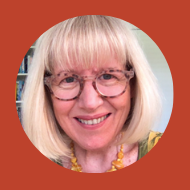
Workshop 9: The joyful life of Learning Stories
Wendy Lee, Educational Leadership Project
Mā te ahurei o te tamaiti e ārahi i ā tātou mahi
Let the uniqueness of the child guide our work.
Get ready to ignite your passion because here’s the rallying cry: Let’s bring back the sheer joy into documenting children’s learning! It’s time to kick aside those pressures that have been sucking the vibrancy out of our working lives. We’re embarking on something truly meaningful here, something that resonates deeply – making a real difference in the learning journeys of these young and curious minds. This is all about building their unique learner identities, setting them on a path to lifelong discovery.
And guess what? This isn’t a call to let documentation take over your life; it’s a call for strategic brilliance. Let’s embrace the idea that ‘less is more’. Write fewer stories, but oh my, make every single one count. Also, if your documentation isn’t used every day, it might be time to let it go. Let’s ensure that what we create is a joy for the tamariki, their whānau, and us, the passionate kaiako. And remember, it’s a privilege to capture these Learning Stories of tamariki learning lives.
Get ready for an exciting exploration of key ideas and elements that make up short, powerful Learning Stories. Not only will they be an absolute delight to write, but they’ll also meet a multitude of demands in your daily work. So, are you ready to infuse your documentation with pure joy and purpose? Let’s dive in!

Workshop 10: From Narrative Assessment to Narrative Therapy and back again
Tania Bullick, University of Waikato
Join Tania to learn about her journey from a facilitator of narrative assessment to a student of narrative therapy and back again to being a teaching fellow at The University of Waikato teaching, you guessed it, narrative assessment. Bruner and Vygotsky, held dear by early child teachers, are also theorists of importance in Narrative Therapy informing therapists of the importance of story for children and families making sense of their lives in therapy. Tania’s background in Learning Stories is foundational to working with families in the therapy context and will be sharing further insights into narrative with kaiako who may be supporting children and families troubled by a problem or two.
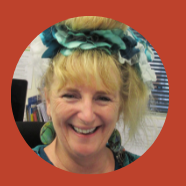
Workshop 11: Perfect imperfection and why you are so much better than a robot – A writers workshop
Julie Killick, Chelsea Kindergarten
Artificial intelligence is storming the world, including the world of early childhood.
Several teachers have used chatGPT to write their Learning Stories, and in places where teachers have limited non-contact time the temptation is understandable! But why should we resist this temptation and is there anything ChatGPT has to offer us?
Please bring a pen and paper to write on, plus a learning story you have written that you feel great about!
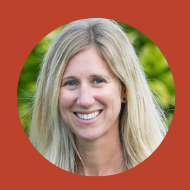
Workshop 12: Embracing Learning Stories in the school environment
Jo Weston, Mount Maunganui Primary School
We ask our tamariki to engage with new contexts, opportunities and challenges with optimism and resourcefulness. Let’s ask it of ourselves! Learning stories in schools has the potential to highlight relationships, connections, share local narratives/histories, curriculum and dispositions in a way that progressions and data dials don’t. When we use the power of learning stories and our desire to connect with tamariki, whanau and our community, we can shape conversations and our learning pathway in exciting ways. These things do not have to operate in isolation. Come and hear about how Mount Maunganui Primary school embraced learning stories, and play based learning and how this is embedded in all aspects of the junior school.
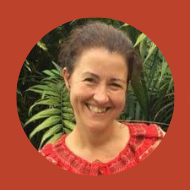
Workshop 13: Te āhuatanga o te tamaiti – Wrapping assessment in a Te Ao Māori cloak of wisdom and learning dispositions (a kaiako Te Tiriti perspective)
Catalina Thompson, Educational Leadership Project
At the heart of any assessment practice is the image of the child. A child who comes into this world bursting with potential, a powerful child, complete with very unique and distinctive strengths. Therefore, the relationship between the child and assessment is ONE in which the first determines and shapes the second and not the other way around. So, how do we honour this perspective inside our narrative assessments? How do we recognise and respond to children’s powerful learning potential? I invite you to embark together on a wānanga, which aims to challenge and strengthen our understandings around ways in which we write Learning Stories for a multitude of purposes. Te Whatu Pōkeka and the principles of Te Whāriki will overarch the kaupapa of this workshop.
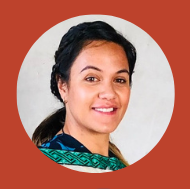
Workshop 14: We are all story tellers – let us connect back to who we are Honouring te mauri o te tamaiti
Maria Sydney, Educational Leadership Project
Our curriculum is founded upon the metaphor of a whāriki. A whāriki woven in raranga as a place for tamariki, whānau and kaiako to stand. Woven into the whāriki are the threads that capture the essence and uniqueness of the tamaiti. Learning Stories are a way of celebrating and honouring that essence, that uniqueness and all of the gifts that tamariki bring with them. Each story, each pūrakau being a unique reflection of who this tamaiti is, where they have come from and where they are going. Join me in waananga as we share, kōrero and celebrate the power of storytelling as transformative practice to share wisdom and carry the aspirations of past, present and future generations.
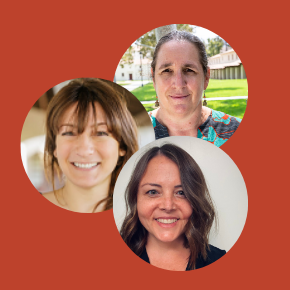
Workshop 15: A Collaboration of Learning: Moving beyond Mentorship to Partnership
Dr Annie White, Associate Professor – Early Childhood Studies, California State University Channel Islands
Lauren Chase, Lecturer – Department of Early Childhood, California State University Channel Islands
Jessica Derby, Patagonia: Great Pacific Child Development Center, California
At California State University Channel Islands, the Early Childhood Studies program uses Learning Stories to strengthen relationships between community childcare center partners, lead teacher mentors, university supervisors, and university pre-service teachers. In addition to writing Learning Stories to young children, university student teachers write Learning Stories to their mentor teachers where they are assigned to early childhood centres located in the local community where they complete practicum student teaching. Learning Stories are being used as a tool for professional development and self-assessment of student teaching learning which ultimately strengthens relationships among adult learners. In a community of practice, pre-service student teachers write Learning Stories in the community classroom settings with young children, and in addition have found this approach a powerful self-reflection tool that can be used for mentoring, coaching and professional development that supports reciprocal life-long learning.

Workshop 16: Infants, Toddlers & Kaiako. Te ako ngātahi: Learning together…
Helen Lye, Manager/Senior Teacher, Caterpillar Kids, Auckland
Nā tō rourou, nā taku rourou, ka ora ai te iwi
With your food basket and my food basket the people will thrive
Let’s talk about what children can teach us – if we take a moment to slow down and observe them and everything that they already are and the amazing things that they are doing. We only have the moment in front of us, so let’s start there and begin to notice who the child is, what they bring to that moment and what the child is already doing, and how truly incredible it is.
As educators, it is our role to celebrate the uniqueness of the child that stands before us, and to use our knowledge and training to highlight how much a child is learning all the time. When we begin to reframe ourselves as the learner – we are able to see a child with a new set of eyes, and marvel at a simple moment which is so rich in life-long learning.
This workshop will explore how the child and everything they bring forward to us, can marry up with all that we know about child development. How do we weave the authentic child through our assessment, and work in partnership with whanau to celebrate their most precious taonga.
